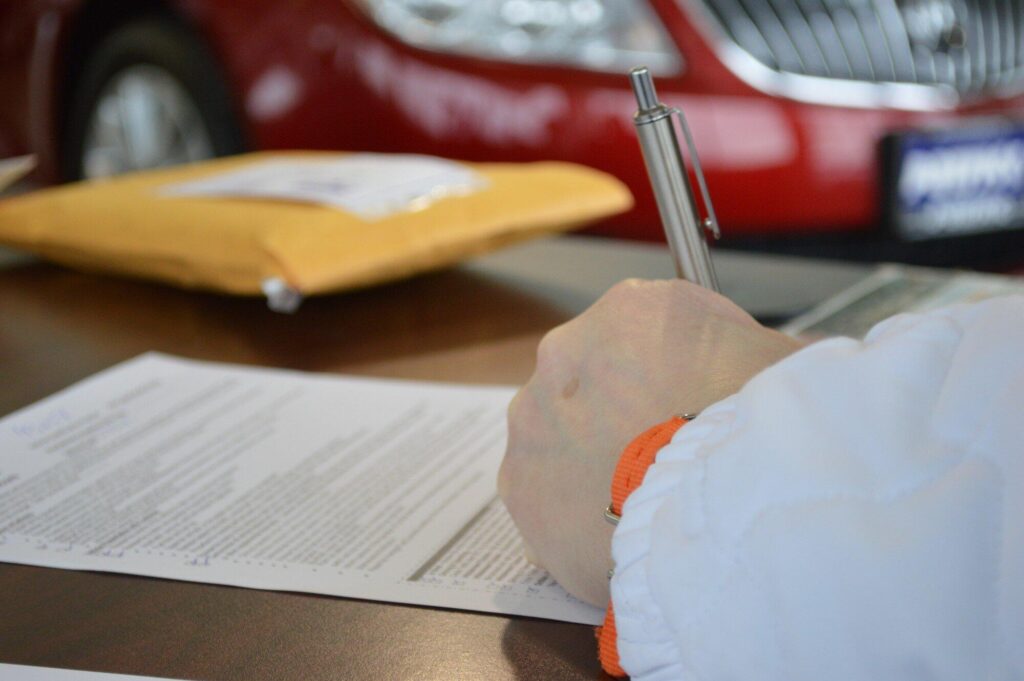Have you ever faced a financial emergency and wondered if pawning a car title could be the solution? In moments of need, many people turn to quick cash solutions like car title loans to bridge the gap.
Pawning a car title can offer fast access to cash, but it’s essential to fully understand the benefits and risks before committing. In this blog post, we’ll explore the pros and cons of pawning a car title as a financial solution.
By the end, you’ll have the insights you need to make an informed decision. Keep on reading!
What is Pawning a Car Title?
Pawning a car title involves using your vehicle as collateral in exchange for a loan. Unlike traditional car loans, the lender doesn’t own your car; they hold the title until the loan is repaid.
You can still drive your car during the loan period. This type of loan is a form of collateral lending services, and it’s often used by people who need cash quickly. Pawning a car title is a fast cash option for those without good credit scores.
Pros: Quick Access to Cash
One of the primary benefits of pawning a car title is fast access to cash. The process is typically quicker than a traditional loan application.
Once the lender assesses your vehicle, you could walk away with cash the same day. This makes car title loans an attractive choice for people facing urgent financial situations.
Pros: No Credit Check
Pawning a car title usually doesn’t require a credit check. Since the loan is secured by your vehicle, your credit history is not a determining factor.
It offers an opportunity for those who may not qualify for a traditional loan. However, the loan amount depends on the value of your car, not your creditworthiness.
Pros: You Retain Your Vehicle
Unlike selling your car, pawning a car title allows you to keep your vehicle. As long as you repay the loan as agreed, you will retain full ownership.
This makes it a better option for individuals who rely on their vehicles for daily transportation. You can continue to use your car during the loan period, unlike in a vehicle equity loan where the car may be temporarily taken away.
Pros: Flexible Loan Amounts
The loan amount in a car title pawn is often based on the value of your vehicle. This means you may be able to get a larger sum for a more expensive car.
The loan size typically ranges between a few hundred to several thousand dollars. It’s a viable option for those needing more significant amounts of money.
Cons: Risk of Losing Your Car
One of the biggest drawbacks of pawning a car title is the risk of losing your vehicle if you fail to repay the loan. If you don’t repay the loan in full within the agreed time, the lender may repossess your car.
This can be particularly stressful if you depend on the vehicle for work or family responsibilities. Ensure you are confident in your ability to repay the loan before using your car title as collateral.
Cons: High-Interest Rates
Car title loans often come with high interest rates. Lenders typically charge higher fees than traditional loans to offset the risk of lending against an asset like a car. This can make it more difficult to repay the loan if the interest accumulates quickly.
If you’re considering this option, it’s essential to understand the loan terms and how much you’ll be paying back in total. High interest rates can lead to financial strain if not managed carefully.
Cons: Short Loan Terms
Most car title loans have short repayment terms, often ranging from 15 to 30 days. This means that you need to repay the loan in a very short period.
If you can’t pay the loan back on time, you might be forced to pay additional fees or have your car repossessed. While short loan terms provide quick cash, they can also pressure borrowers into finding money fast. You’ll need to ensure you’re able to manage the repayment within the allotted time.
Cons: A Potential Pitfall
It’s important to be wary of offers like “title loan without title.” This phrase suggests that you can access a loan without putting up your car’s title as collateral, which is misleading.
In most cases, you will need to provide the title to secure the loan. If a lender claims you don’t need a title, they may be setting up unrealistic expectations or even engaging in fraud. Always confirm the terms before agreeing to anything.
Cons: Lack of Regulation in Some Areas
Car title loans are not as regulated in some states, which means that the terms and conditions could vary significantly. In places where car title loans are less regulated, lenders may charge excessive fees or have terms that favor them over borrowers.
It’s crucial to research the laws in your state before proceeding with pawning a car title. This ensures you are aware of your rights and obligations as a borrower.
Potential Impact on Your Credit Score
Although pawning a car title typically doesn’t involve a credit check, failing to repay the loan can still impact your credit score. If the lender reports your default to credit bureaus, it could lead to a drop in your score.
This can affect your ability to obtain other forms of credit in the future. Be sure to repay the loan on time to avoid long-term financial consequences.
Alternatives to Pawning a Car Title
If you’re unsure about pawning a car title, there are other options you can explore. Personal loans, payday loans, and borrowing from friends or family may provide you with the financial help you need without the risk of losing your vehicle.
Additionally, vehicle equity loans can offer similar benefits with potentially better terms. Always weigh the pros and cons of each option before making your decision.
Is Pawning a Car Title the Right Financial Solution for You?
Pawning a car title can be a useful financial tool when you need quick cash, but it’s not without risks. While it offers fast access to money, it also comes with the possibility of losing your car if you default on the loan.
Carefully consider your financial situation and ability to repay before making this decision. With the right planning and understanding of the terms, pawning a car title can be a viable option for urgent financial needs.
Did you like this guide? Browse our website for more!







